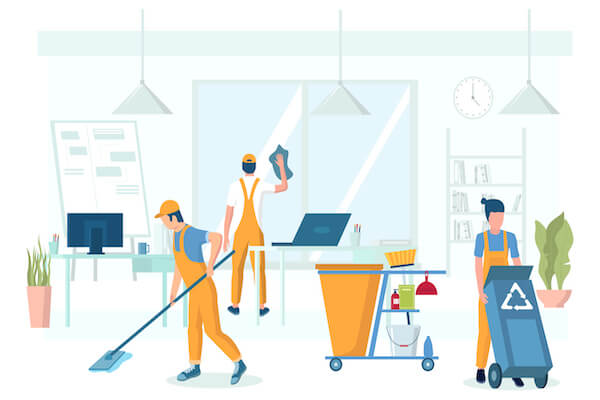It’s the most wonderful time of the year! Winter is coming, and it’s time to start thinking about getting your facility ready for the season. From retailers gearing up for holiday shoppers to planning that annual office party, the upcoming months are typically the busiest for businesses of all types. If this sounds familiar, hiring professional cleaners can be a great way to lighten the load. Read on to learn how a full-service commercial cleaning company like Corvus can help.
1. Managing Increased Foot Traffic Areas
The holidays often bring more people into commercial spaces, whether for shopping, parties, or events. With increased foot traffic comes more dirt, dust, and mess. Professional cleaners have the expertise and tools to handle the higher cleaning demands during this busy period efficiently, keeping your workplace clean and presentable.
2. Reducing the Spread of Illness
During the winter months, the flu and other illnesses tend to be more prevalent. Professional cleaners can prevent the spread of germs through regular cleaning of commonly touched surfaces such as doorknobs, desks, and countertops. They have access to commercial-grade products and will follow strict cleaning protocols to effectively eliminate pathogens, creating a healthier environment for employees and visitors alike.
3. Preventing Accidents
Weather conditions such as snow and ice can make floors slippery and pose a significant safety hazard to your facility. Professional cleaning crews come equipped with specialized tools such as floor polishers, wet and dry vacuum cleaners, and microfiber mops to efficiently and effectively clean floors. Plus, they comply with safety regulations and standards, including OSHA standards. You can count on professionals to take extra caution, like putting up signage that warns of potential hazards (think: wet floor signs) and only using non-slip cleaners to reduce the risk of accidents and injuries.
4. Addressing Special Cleaning Needs
The holiday season may bring about extra cleaning tasks unique to this time of year. For example, decorative ornaments hung in an office may require special care. Professional cleaners are experienced in handling delicate items, ensuring they’re properly cleaned and maintained without causing any damage.
5. Improving Indoor Air Quality
When we spend more time indoors in the winter, the air quality inside a commercial space can degrade as dust, allergens, and other airborne particles quickly accumulate. Implementing thorough dusting, cleaning air ducts, and using HEPA filters are some measures professional cleaners take to promote a healthier indoor environment.
Professional Cleaning with Corvus
If you need high-quality cleaning and disinfecting services this season, Corvus has you covered. Contact us today to discuss why hiring professional cleaners is a worthwhile investment for your business.



